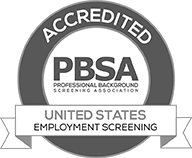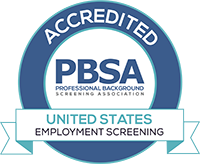Please Vote for Backgrounds Online as a Top Screening Company  Start Survey
Start Survey
BLOG
California Employers Cannot Reference Juvenile Records As Of 2017
December 20, 2016
An update to existing California law stipulates that as of January 1, 2017, employers may not ask job applicants if they have a juvenile criminal conviction.
Employers will also be banned from looking up information about juvenile records on their own or through any third party.
Existing Law
It's already illegal for California employers to ask applicants about juvenile arrests that did not result in a conviction. If a candidate has a juvenile conviction, but it was sealed or dismissed, it is also illegal to use that information to make hiring decisions.
California supports the infamous "Ban the Box" policy, which prohibits employers from asking about criminal convictions on a job application. The upcoming Labor Code update has a similar impact, but it is focused exclusively on juvenile convictions.
The New Regulations
As of January 1, 2017, California employers will be prohibited from asking applicants about juvenile criminal records. It will be illegal to ask an applicant to provide written or verbal details about an "arrest, detention, processing, diversion, supervision, adjudication, or court disposition that occurred while the person was subject to the process and jurisdiction of juvenile court law."
Similarly, employers will not be allowed to use juvenile records to make decisions related to hiring, terminating or promoting employees. It will also be illegal to use a juvenile record when determining whether or not to allow someone access to an apprenticeship or another type of training program that could lead to future employment.
California employers will not be permitted to ask applicants about juvenile arrests or to seek such information from any source. The new regulations are imposed by Assembly Bill 1843, which is an amendment to Section 432.7 of the California Labor Code.
Penalties For Violating This Law
If a job applicant is able to show that a prospective employer referenced their juvenile records during the hiring process, then they will be entitled to bring an action to recover actual damages or $200 (whichever amount is greater). The individual will also have the right to recover "reasonable attorney's fees."
Employers that are found to intentionally violate the new law may have to pay the applicant actual damages or $500 (whichever amount is greater), costs and attorney fees that are deemed reasonable. Violations of this law will be misdemeanors that are punishable by a fine.
Exceptions For The Healthcare Industry
Due to the sensitive nature of the healthcare industry, employers and job seekers must follow a more stringent set of regulations. The updated bill provides key exceptions to employers at health facilities. A definition of the type of facilities that warrant this exception can be found in Section 1250 of the Health and Safety Code.
Any juvenile record, including charges that were dropped and convictions that were dismissed, can be considered for job seekers in the medical field. People who might work in a health facility can be asked about juvenile records that could not otherwise be referenced.
California Employers Should Update Their Hiring Practices
We recommend that every employer maintain written documentation about their hiring and screening policies. This can include everything from how to find qualified candidates, best practices for interviews and what type of background check will be run for every position.
The start of a new year can be an ideal time to review such documentation. California employers may wish to include updates that accommodate the revised laws about juvenile records.







